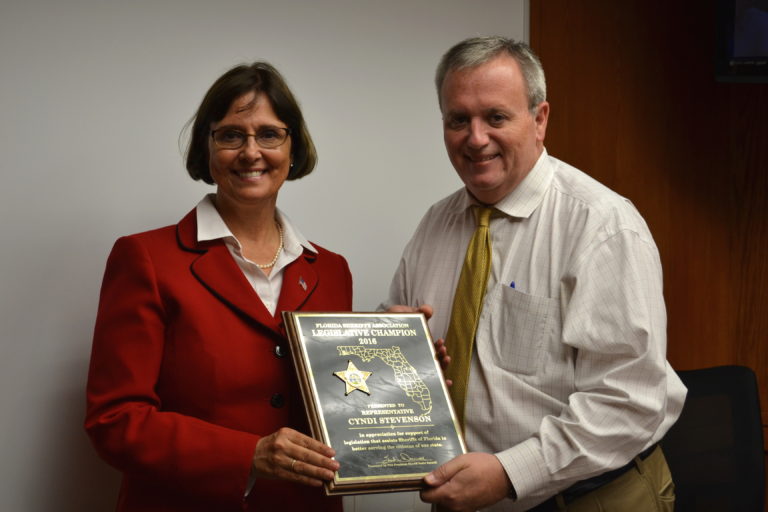Stat Rep. RANDY FINE (R-PALM BAY)(WFSU)
Florida House bill would limit cities' power over businesses
By Dan Sweeney
Sun Sentinel
To mayors, it’s like some unspeakable combination of Dante’s hell and Kafka’s trial. Only with zoning laws.
The target of their horror: the potential consequences of a Florida House bill that would prevent local governments from passing any business regulations that the state has not expressly allowed.
“We would have strip clubs next to churches, next to bars, next to schools, all with neon signs,” said Wilton Manors Mayor Gary Resnick.
Florida statutes give municipalities broad authority to control zoning, local law enforcement, building codes, and many other local concerns. But mayors in South Florida say they fear the broad bill being considered could eventually change that. And losing power over zoning is what they most fear.
“We’re responsible for the quality of life in our community,” Boca Raton Mayor Susan Haynie said. “To preempt us from being able to do that … it’s going to be difficult if not impossible for us to conduct business.”
Haynie said she is most concerned about issues that will crop up in the future. There’s nothing in state law, for example, about regulation of medical marijuana dispensaries. And who knows what future technology or business model will arise that will need quick action by cities and counties, she said.
Among local ordinances across South Florida that could be affected: the so-called puppy mill ban would have to be dropped under the proposed law.
The bill’s sponsor, state Rep. Randy Fine, R-Palm Bay, doesn’t understand what the fuss is about.
“Many of these mayors believe we live in the United Towns of Florida, but we don’t,” Fine said. “The state is the nexus of government in our state and we have a number of local jurisdictions that have behaved well outside the regulatory framework.”
Specifically, Fine cited Miami Beach’s decision to raise the local minimum wage to $13.31 an hour by 2021, prompting a lawsuit by business groups which Attorney General Pam Bondi has joined.
The lawsuit points to state law that prohibits local governments from setting their own minimum wages. That law would seem to make the new bill unnecessary, but Fine wants to provide a counter to any future intrusions by local governments into state business.
“It just becomes a constant game of Regulatory Overreach Whack-a-Mole,” he said. “We just want to throw out the Whack-a-Mole machine.’’
For local laws that are already in place, there would be a three-year grace period before they expire in 2020.
Broader local laws, such as building codes, would remain in place, so it's not as though developers could simply throw up skyscrapers in towns with height maximums. But mayors worry that future changes in state law could place those restrictions in jeopardy.
Haynie, who is also the president of the Florida League of Cities, said opposition to the bill is practically universal among the organization’s membership, with zoning laws regularly cited as a chief concern.
There’s already heavy lobbying against the bill by cities and counties despite the fact it has only had one committee hearing, where it passed 9-6 along party lines, Republicans for, Democrats against. It still has one more committee hearing before going to the House floor for a vote. And in the Senate, there is no identical bill.
But Fine considers a somewhat similar preemption bill by state Sen. Kathleen Passidomo, R-Naples, to be the bill’s Senate companion.
Passidomo’s longer, more in-depth bill specifically bans cities and counties from enacting local laws that would ban the sale of a good or service, impose a penalty on the sale of a good or service, raise the minimum wage or pass any regulation that interferes with trade or labor anywhere else in the state.
The legislation similarly combats local laws such as Miami Beach’s minimum wage law. It has been assigned to four committees, none of which have heard it.
Fine said that having to wait for the Legislature to act and give municipalities permission to pass regulation is a good thing.
“We want there to be a more deliberative process. A regulation on business is a tax on business because it makes it harder to do business.” he said.
dsweeney@SunSentinel.com, 954-356-4605 or Twitter @Daniel_Sweeney



























































